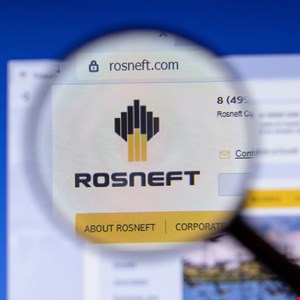- Half of Firms Suffer Two Supply Chain Incidents in Past Year
- Data strategy e qualità del dato: come gettare le basi per implementare l’AI
- INE Security Alert: $16.6 Billion in Cyber Losses Underscore Critical Need for Advanced Security Training
- From help desk to AI harmony: Redefining IT support in the age of intelligent automation
- F5 grabs agentic AI startup Fletch to bolster security platform
Hackers Hit Rosneft

A cyber-attack has compromised the computer network of the German subsidiary of Moscow-based Russian energy company Rosneft.
German newspaper die Welt reported the security incident on Sunday, describing it as a hacking attack. According to the newspaper, Germany’s cybersecurity watchdog BSI had confirmed the breach and offered to help Rosneft restore its systems.
BSI said that the attack occurred on Friday night or early Saturday morning. The Federal Cyber Security Authority has issued a warning to other energy companies to be on the alert for cyber-attacks.
According to a report by Stuttgarter Nachrichten, Rosneft reported the cyber-attack to the Berlin State Criminal Police Office on Saturday. The paper said a spokesperson said that the Berlin Public Prosecutor’s Office initiated proceedings and commissioned the Federal Criminal Police Office (BKA) to investigate further.
Although Rosneft’s systems have been impacted by the attack, die Welt reported that neither the company’s business nor its ability to supply energy had been disrupted.
Security sources cited by the newspaper suspected the hacking collective “Anonymous” of being behind the attack after the group declared its intention to hit Russian targets in response to Russia’s invasion of Ukraine.
Anonymous has published a statement on social media claiming responsibility for the attack.
The group wrote: “Anonymous has attacked the energy company Rosneft. It is confirmed to have caused extensive damage. The attack captured a total of 20TB of data.
“Rosneft is Russia’s largest oil producer and is also involved in critical infrastructure in Germany.”
According to Stuttgarter Nachrichten, Anonymous was also able to remotely erase 59 smartphones and other electronic devices belonging to Rosneft.
Rüdiger Trost from Finnish cybersecurity and privacy company F-Secure commented that cyber-attacks on targets with links to Russia could act as incendiaries in an already tense geopolitical situation.
He said: “The hackers of Rosneft see themselves as part of the Anonymous collective, but supposedly they are Germans. What if Russia interprets such a thing as an act of war by Germany?”
Trost added: “We now see the real danger of a global cyber civil war that no one can control anymore.”

